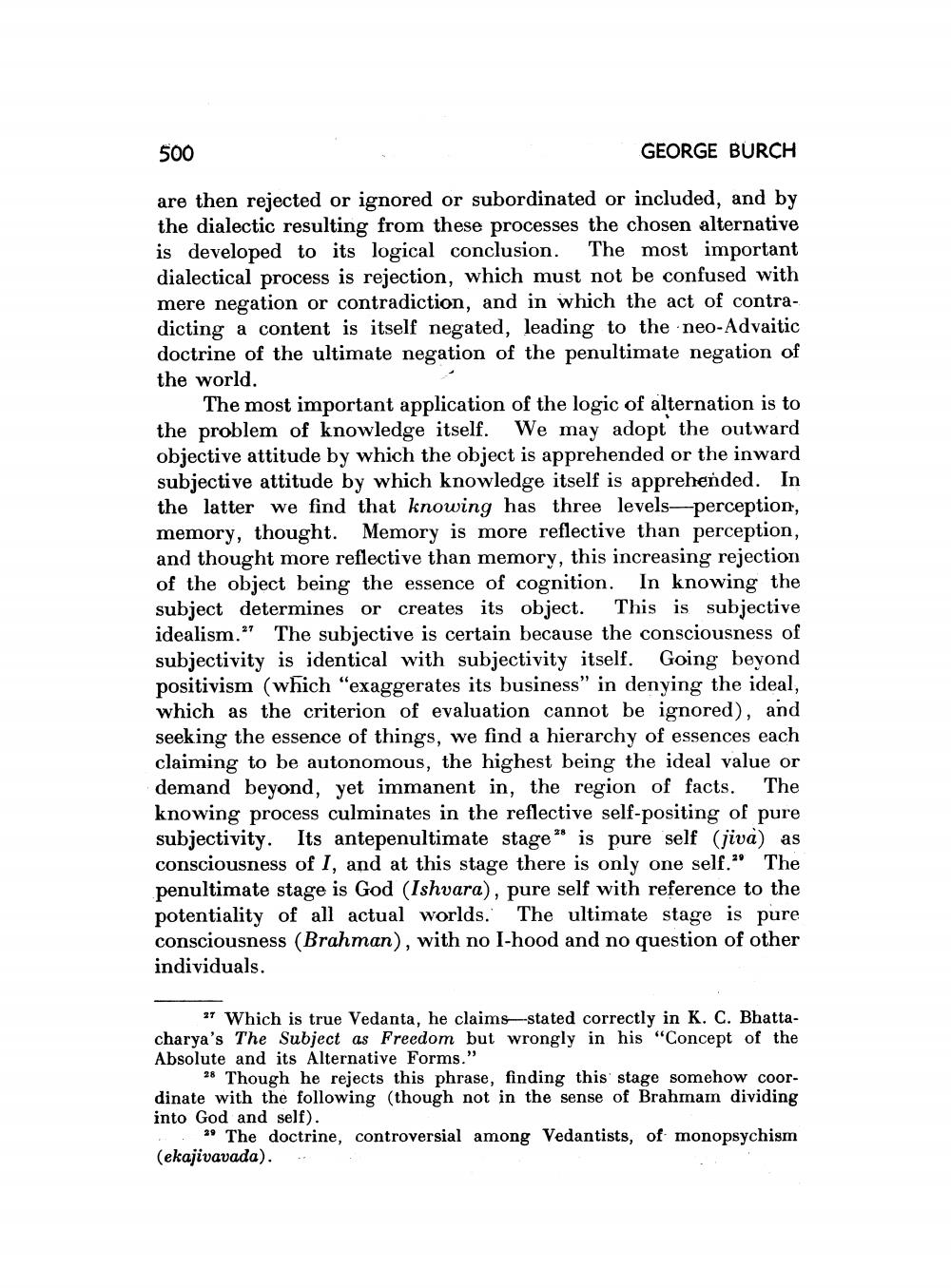________________
500
GEORGE BURCH
are then rejected or ignored or subordinated or included, and by the dialectic resulting from these processes the chosen alternative is developed to its logical conclusion. The most important dialectical process is rejection, which must not be confused with mere negation or contradiction, and in which the act of contradicting a content is itself negated, leading to the neo-Advaitic doctrine of the ultimate negation of the penultimate negation of the world.
The most important application of the logic of alternation is to the problem of knowledge itself. We may adopt the outward objective attitude by which the object is apprehended or the inward subjective attitude by which knowledge itself is apprehended. In the latter we find that knowing has three levels-perception, memory, thought. Memory is more reflective than perception, and thought more reflective than memory, this increasing rejection of the object being the essence of cognition. In knowing the subject determines or creates its object. This is subjective idealism." The subjective is certain because the consciousness of subjectivity is identical with subjectivity itself. Going beyond positivism (which "exaggerates its business" in denying the ideal, which as the criterion of evaluation cannot be ignored), and seeking the essence of things, we find a hierarchy of essences each claiming to be autonomous, the highest being the ideal value or demand beyond, yet immanent in, the region of facts. The knowing process culminates in the reflective self-positing of pure subjectivity. Its antepenultimate stage* is pure self (jiva) as consciousness of I, and at this stage there is only one self." The penultimate stage is God (Ishvara), pure self with reference to the potentiality of all actual worlds. The ultimate stage is pure consciousness (Brahman), with no I-hood and no question of other individuals.
27 Which is true Vedanta, he claims stated correctly in K. C. Bhattacharya's The Subject as Freedom but wrongly in his "Concept of the Absolute and its Alternative Forms."
28 Though he rejects this phrase, finding this stage somehow coordinate with the following (though not in the sense of Brahmam dividing into God and self).
* The doctrine, controversial among Vedantists, of monopsychism (ekajivavada).




